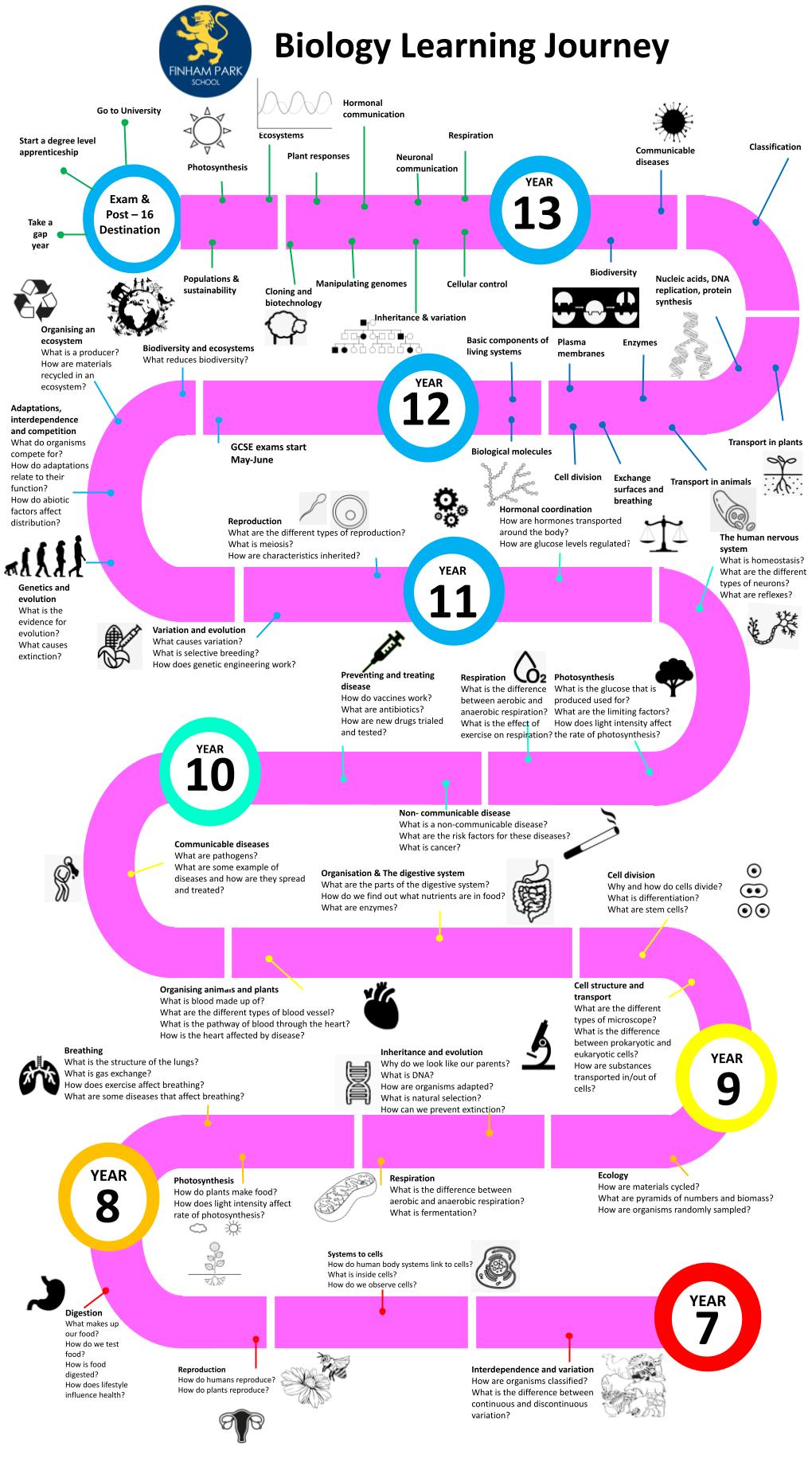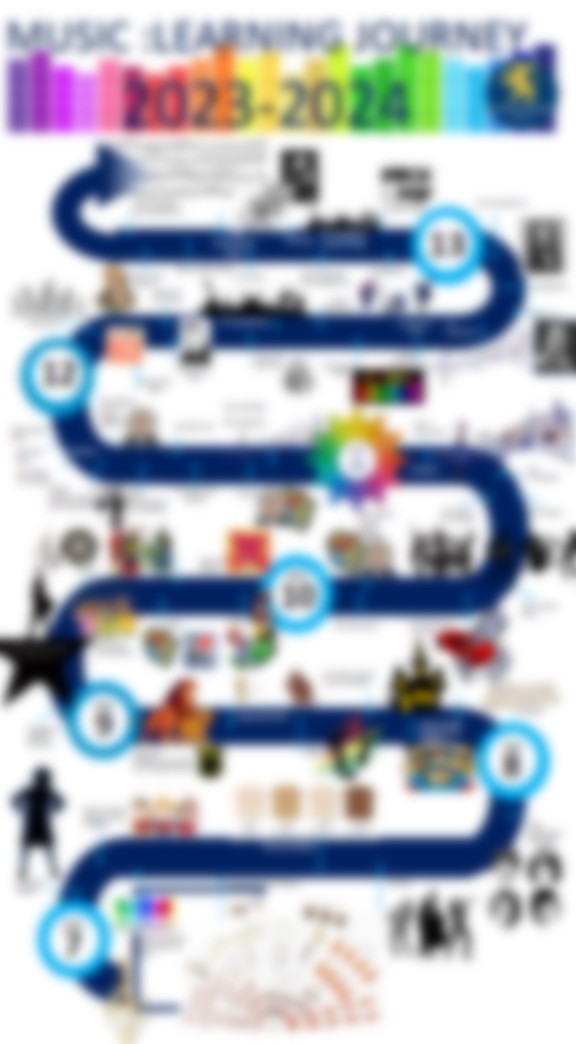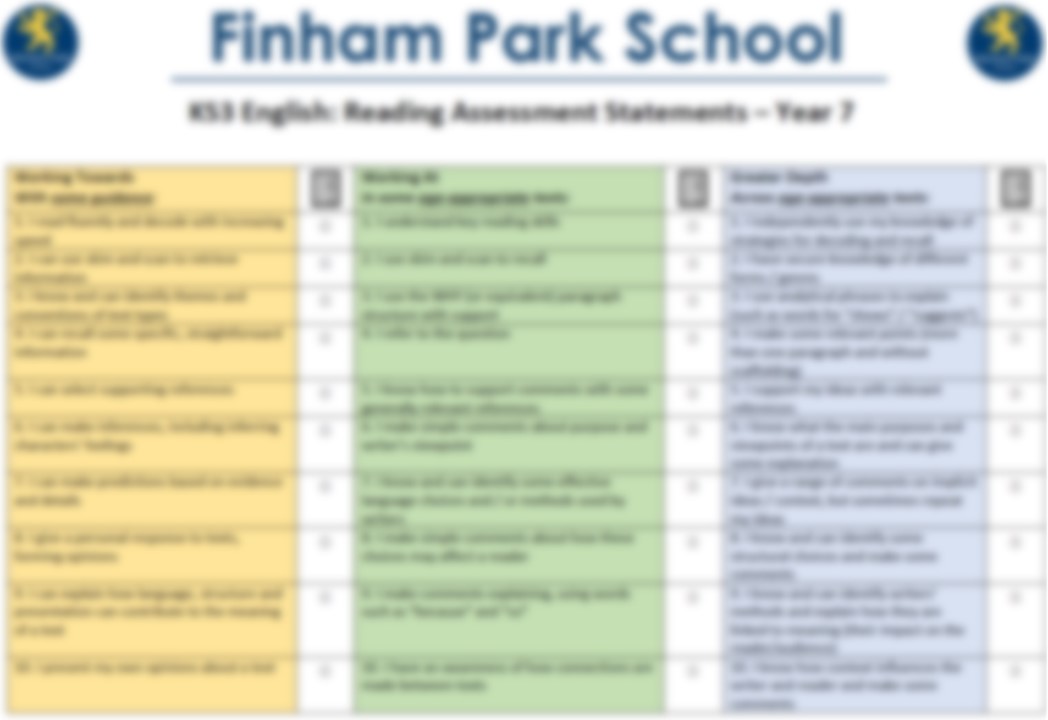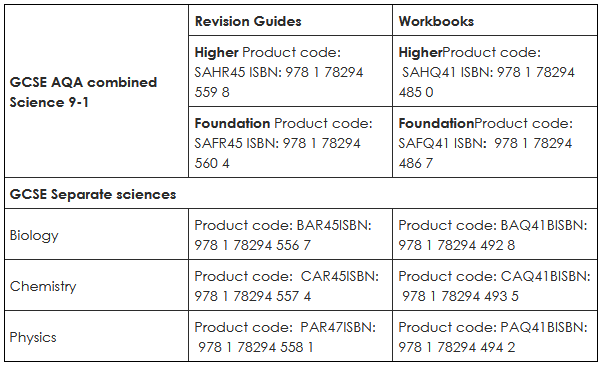Science
Welcome to the Science department
Curriculum intentions and aims
To instil a love of learning and provide students with powerful knowledge needed to understand the world around them. We promote curiosity by equipping students with the skills they need to question processes. We explore scientific principles such as analysing data, drawing conclusions, problem solving as well as ensuring students are scientifically literate.
The Science team at Finham Park are committed to delivering a high quality, lively interesting and above all scientifically rich curriculum. Unlike most schools in Coventry, and indeed in England, Finham has a full range of qualified Biology, Chemistry and Physics specialist teachers.
We also realise that learning takes place beyond the classroom. We take students to events at Warwick university and University of Birmingham, including masterclasses and lab experience days. We regularly run other trips too including Big Bang Fair. We run a weekly STEM club on a Thursday for students to experience a wide range of activities that go beyond what’s covered in the classroom, particularly enjoyed by our Gifted and Talented students. As a department we oversee the Medical Society, that is led by a group of sixth form students. This involves inviting in external speakers who work in different medical related jobs to increase awareness of different roles. Year 13 students/ex students run sessions on ‘how to get into medicine’, which is really popular amongst our students.
The science department is a great place to learn where nothing is impossible.
Key Stage 3
KS3 Science will provide a foundation for the students at Finham Park to understand the world around them through the teaching of Biology, Chemistry and Physics. Through a curriculum focused on big ideas, students are taught essential aspects of the knowledge, methods, processes and uses of science. This foundation of key knowledge and concepts aims to encourage our students to recognise the power and importance of rational explanation and develop their excitement and curiosity about the world around us. They are encouraged to understand how science can be used to explain what is occurring, predict how things will behave, and analyse the causes.
The KS3 Science curriculum the students follow leads directly into the AQA GCSE with links throughout year 7 and 8 in order for students to develop the skills they need to succeed and to make the transition from KS3 into KS4 as smooth as possible.
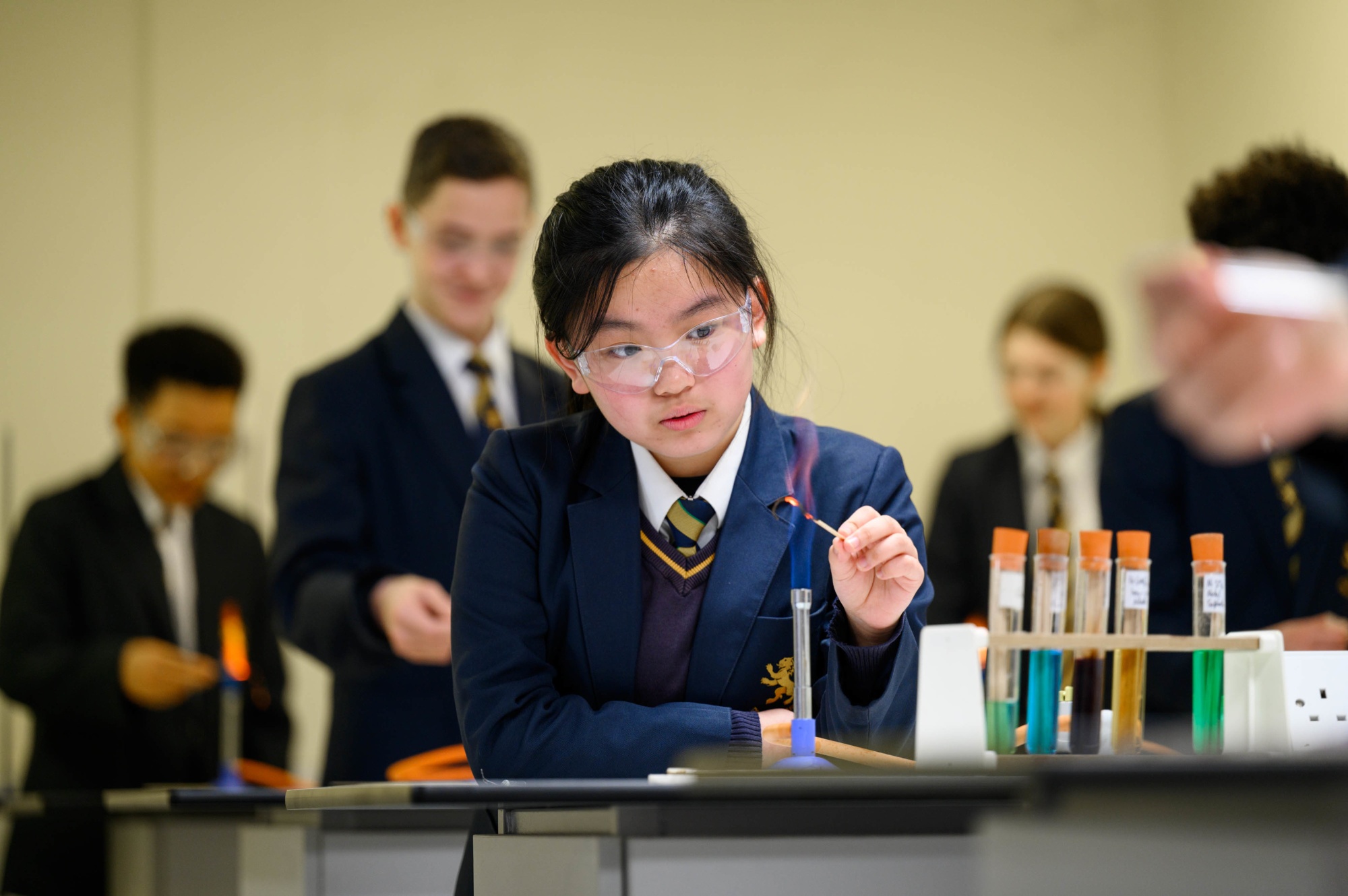
KS3 Science will provide a foundation for the students at Finham Park to understand the world around them through the teaching of Biology, Chemistry and Physics. Through a curriculum focused on big ideas, students are taught essential aspects of the knowledge, methods, processes and uses of science. This foundation of key knowledge and concepts aims to encourage our students to recognise the power and importance of rational explanation and develop their excitement and curiosity about the world around us. They are encouraged to understand how science can be used to explain what is occurring, predict how things will behave, and analyse the causes.
The KS3 Science curriculum the students follow leads directly into the AQA GCSE with links throughout year 7 and 8 in order for students to develop the skills they need to succeed and to make the transition from KS3 into KS4 as smooth as possible.
GCSE Science Year 10 -11
NEW AQA GCSE SCIENCE 9-1
Students start their GCSE work at the beginning of Year 10. There are two routes through GCSE Science, Double Award (AQA GCSE Combined Science Trilogy 8464) or Triple Award separate Sciences (AQA GCSE Biology 8461, Chemistry 8462 and Physics 8463).
Combined Science students are set based on ability and are taught 9 science lessons per week. They are taught short topics that cover Physics, Chemistry and Biology. There are various assessment points throughout the year.
The aim of the GCSE Science course is to allow students to develop essential knowledge and understanding of key concepts in science. We have good laboratory facilities and the subject is delivered with a great deal of hands-on practical experience. Science stimulates student’s curiosity about the world around them, it enables students to develop and evaluate explanations through experimental evidence and modelling.
Separate Science is the same as Double Award, however there is extra content for most topics where ideas are explored at a greater depth and breadth of learning. The final exams are longer and students will be awarded 3 separate GCSEs (GCSE Biology, Chemistry and Physics) with 3 separate and unconnected Grades 9-1.
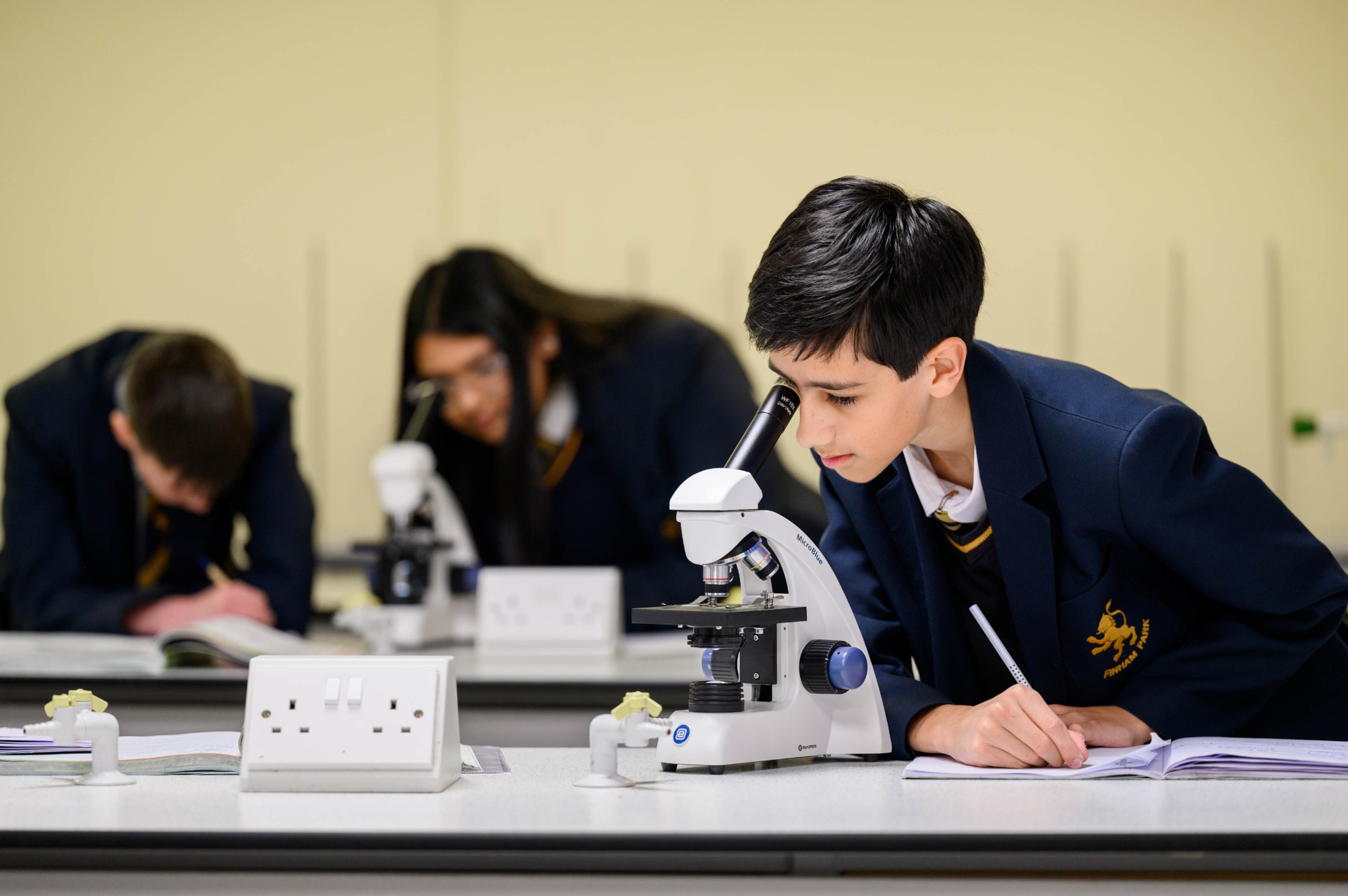
Revision guides: Please ensure your child has a copy of a revision guide and a matching workbook to support revision. These can by purchased from https://www.cgpbooks.co.uk/
Tassomai: Please encourage your child to use Tassomai for revision. Tassomai uses interactive quizzes matched to the AQA specification and Artificial Intelligence to direct students' revision to the topics they struggle the most with.
Science at A level
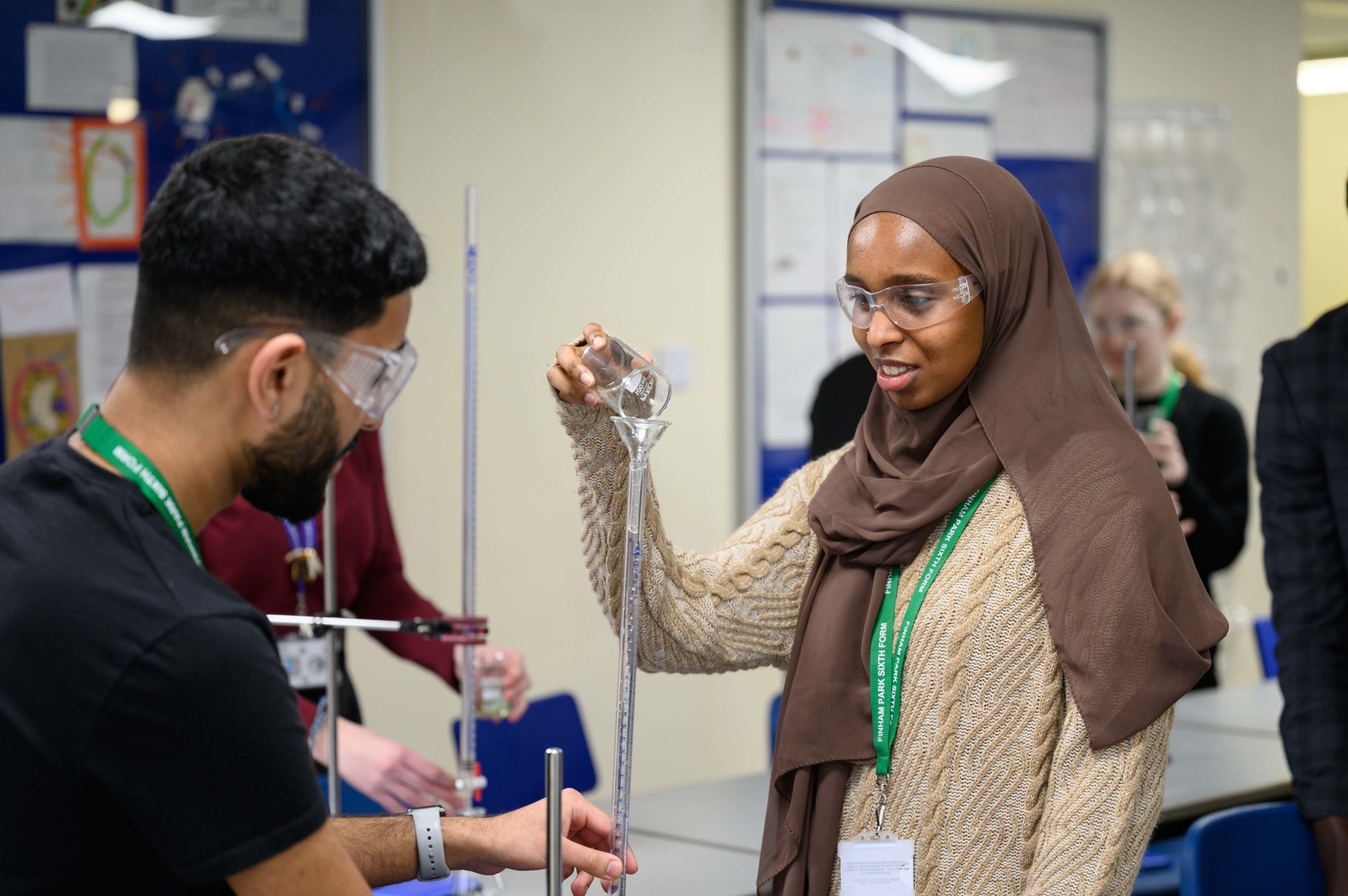
A Level Biology, Chemistry and Physics are taught as 2 year linear subjects with 3 exams totalling 6 hours of exam assessment. All 3 sciences are 100% externally assessed and there is no coursework or controlled assessments. However, learners will be required to develop a range of practical skills throughout their course in preparation for the written examinations. Planning, analysing data and evaluation of practicals will constitute a minimum of 15% of the available marks in the written exam. Students studying A level Biology, Chemistry or Physics can be awarded a Practical Endorsement. This non-exam assessment component rewards the development of practical competency and is teacher assessed. Learners complete a minimum of 12 assessed experiments covering specified technical skills (together with the use of apparatus and practical techniques) and each student will keep an appropriate record of their assessed practical activities.
Students who demonstrate the required standard across all the requirements of the assessment criteria will receive a ‘pass’ grade. The assessment of practical skills is a compulsory requirement of the course of study for A level qualifications and will appear on all students’ certificates as a separately reported result, alongside the overall grade for the qualification. The school follows the Oxford Cambridge and RSA (OCR) exam board which specifies 10% of the marks available within written examinations for Biology, 20% for Chemistry and 40% for Physics, will be for assessment of mathematics.
Department Staff
| Director of Science | Dr N Uliana (PhD) |
| Head of Biology | Ms E Koutsou (BSc) and Dr J Woodward (PhD) |
| Head of Chemistry | Ms I Ali (BSc) |
| Head of Physics | Ms S Annison (BEng) |
| Mr N Powell (BSc) | |
| Mr J Brennan (BSc) | |
| Ms R Charlesworth (BSc) | |
| Mr P Darby (BSc) | |
| Ms K Dhanjal (MSc) | |
| Dr L Rose (PhD) | |
| Mr J Crawford - College Leader (BSc) | |
| Ms N Attwell (BA) | |
| Ms M Khan (BSc) | |
| Mr D Tennant (BSc) | |
| Ms F Wright (Bsc) | |
| Ms H Rayat (BSc, MA, LLB, LLM) |
